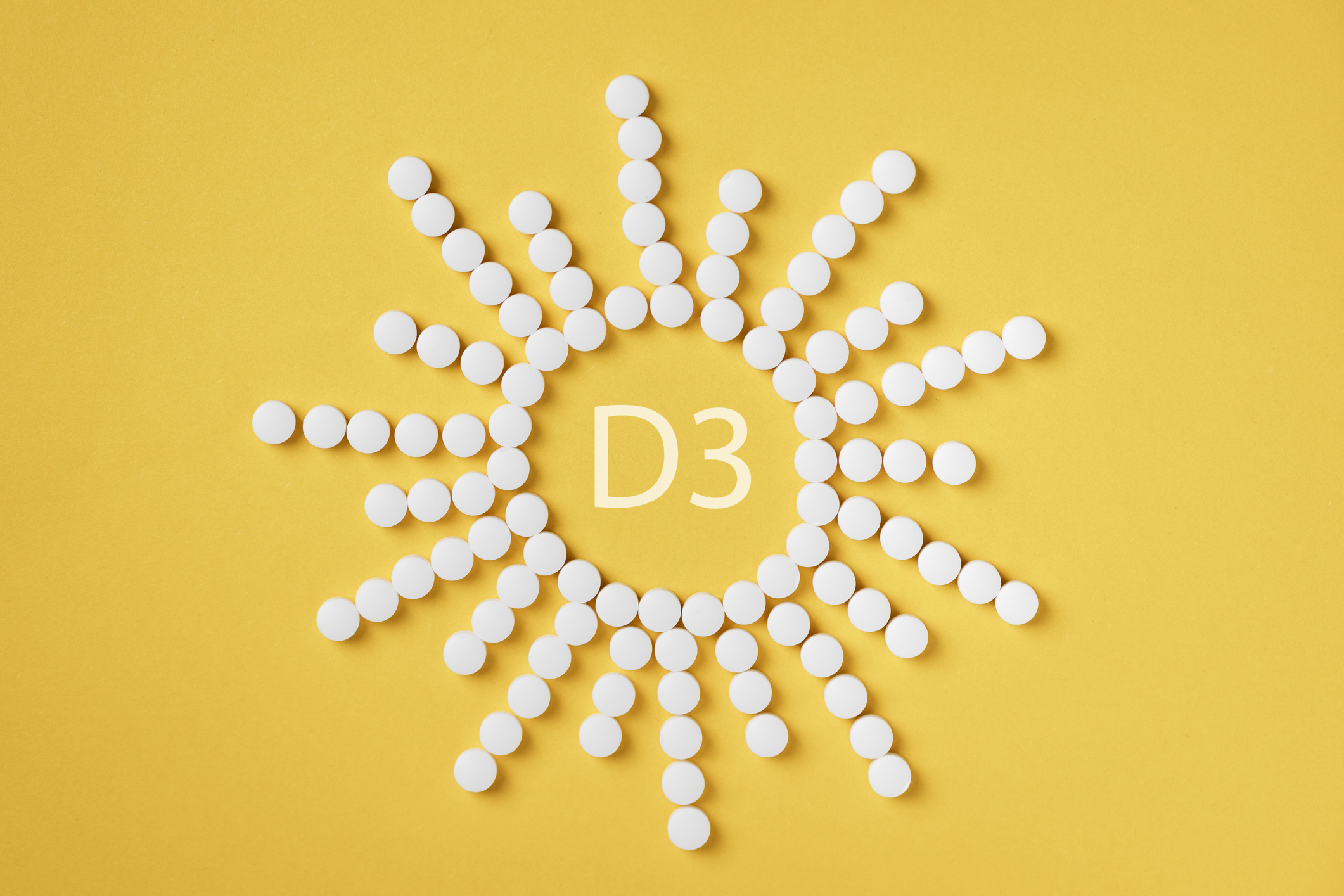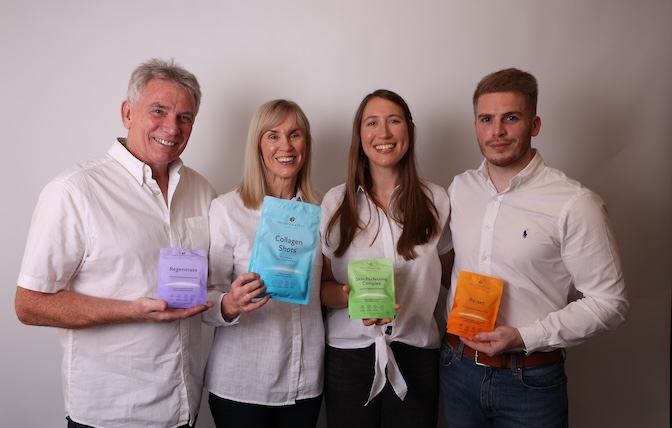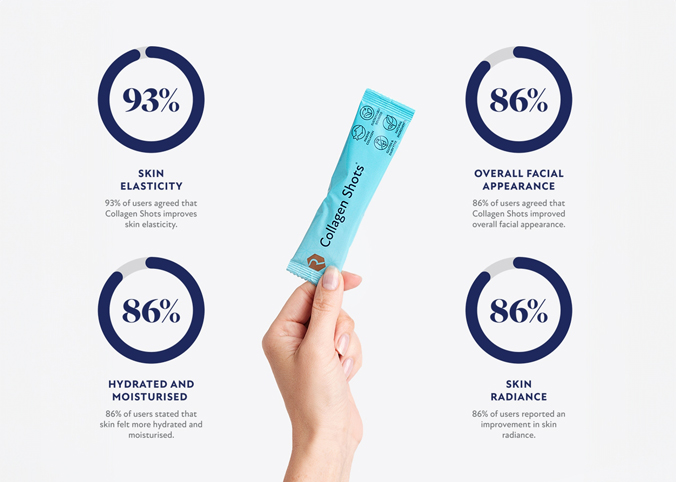Vitamin D3

In this blog we will be taking you through the remarkable benefits of Vitamin D3, explore the recommended daily dosage, and address some of the concerns surrounding vitamin D3 deficiency. We’ll also share with you some foods that are rich natural sources of vitamin D3, enabling you to make informed choices about your health. Get ready to embrace the power of this sunshine nutrient.
What is Vitamin D3?
Vitamin D3 is a crucial nutrient that plays a vital role in maintaining overall health and well-being. It is also known as the sunshine vitamin because our bodies can synthesise it when our skin is exposed to sunlight. However many people do not get enough sunlight exposure, and therefore need to supplement their vitamin D intake.
Vitamin D is a fat-soluble vitamin that is essential for the absorption and utilisation of calcium and phosphorus, which are essential for building and maintaining strong bones and teeth. It also plays a role in regulating the immune system, muscle function and nerve signalling.
What are the benefits of Vitamin D3?
There are numerous benefits to maintaining adequate vitamin D levels. Here are some of the key benefits:
Improves Bone Health
Vitamin D is essential for the absorption of calcium and phosphorus which are crucial for building and maintaining strong bones and teeth.Drives the Immune System
At the very core of the immune system is Vitamin D. which plays a vital role in regulating and protecting the body against infections.Enhances Muscle Function
Vitamin D3 helps to regulate muscle contractions and nerve signalling, which are essential for overall muscle health. Vitamin D3 also helps to prevent muscle breakdown and promotes muscle growth.Mood Regulation
Vitamin D3 helps to increase serotonin levels in the brain. When serotonin levels are low, people are more likely to experience depression and anxiety. It also helps to increase BDNF (brain-derived neurotrophic factor) levels. Higher levels of BDNF have been associated with better mood and cognitive function.Recommended Daily Dose of Vitamin D3
The recommended daily intake (RDI) of Vitamin D3 for adults is 600 IU (international units). However, some people may need higher doses, especially those who are at risk of deficiency.
Vitamin D3 daily dosage requirements can very much depend on your age, lifestyle, location, and other medical conditions. You should always check your recommended dosage with your GP, and ask your GP to periodically check the Vitamin D3 levels in your body.
What is Vitamin D3 Deficiency?
Vitamin D3 deficiency is a common condition, especially among people who live in the northern climates or who have limited sun exposure, like we do here in the UK. Deficiency of Vitamin D3 can lead to a number of health problems, including:
Osteoporosis
Vitamin D3 deficiency can contribute to bone loss and increase the risk of osteoporosis.Muscle Weakness
Vitamin D3 deficiency can also lead to muscle weakness and muscle atrophy, leading to an increased risk of falls and muscle failure.Autoimmune Diseases
While the link is much lessened when compared to muscle weakness and osteoporosis, vitamin D3 deficiency has been linked to an increased risk of autoimmune diseases, such as multiple sclerosis.Which foods are naturally rich in Vitamin D3?
While Vitamin D3 is associated with being the sunshine vitamin through the body’s absorption of the vitamin when exposed to sunlight, there are a number of natural sources of vitamin D3, which you should be integrating into your diet:
Fatty Fish
Salmon, tuna, mackerel, and sardines are all excellent sources of vitamin D3. A 3oz serving of cooked salmon contains over 80% of your recommended daily intake of the vitamin.Egg Yolks
A single egg yolk contains around 10% of your recommended daily allowance of vitamin D3Fortified Foods
Foods such as milk, yoghurt, and breakfast cereals are rich in vitamin D3. These food types typically offer the body around 20% of your daily recommended allowance per serving.Mushrooms
Some types of mushrooms, such as portobello mushrooms can produce vitamin D3 when exposed to the sunlight. However, the amount of vitamin D3 in mushrooms can vary depending on type and exposure to sun.What is also important to note is that the amount of Vitamin D3 in foods can vary depending on the food source and the method of preparation. For example, cooking can destroy some of the vitamins through the food source's exposure to heat.
Which Rejuvenated Products contain Vitamin D3?
While Vitamin D3 is readily available through the sun’s rays and natural food consumption, it can be hard to get your recommended daily intake consistently without the help of a supplement or vitamin aid.
Vitamin D3 is a vital component in some of our wellness supplements including; Cellular Calm Complex, H3O Night Repair, Immune Complex and Re-set. These rich sources of D3 also offer you additional benefits through their other ingredients. Try them today.






